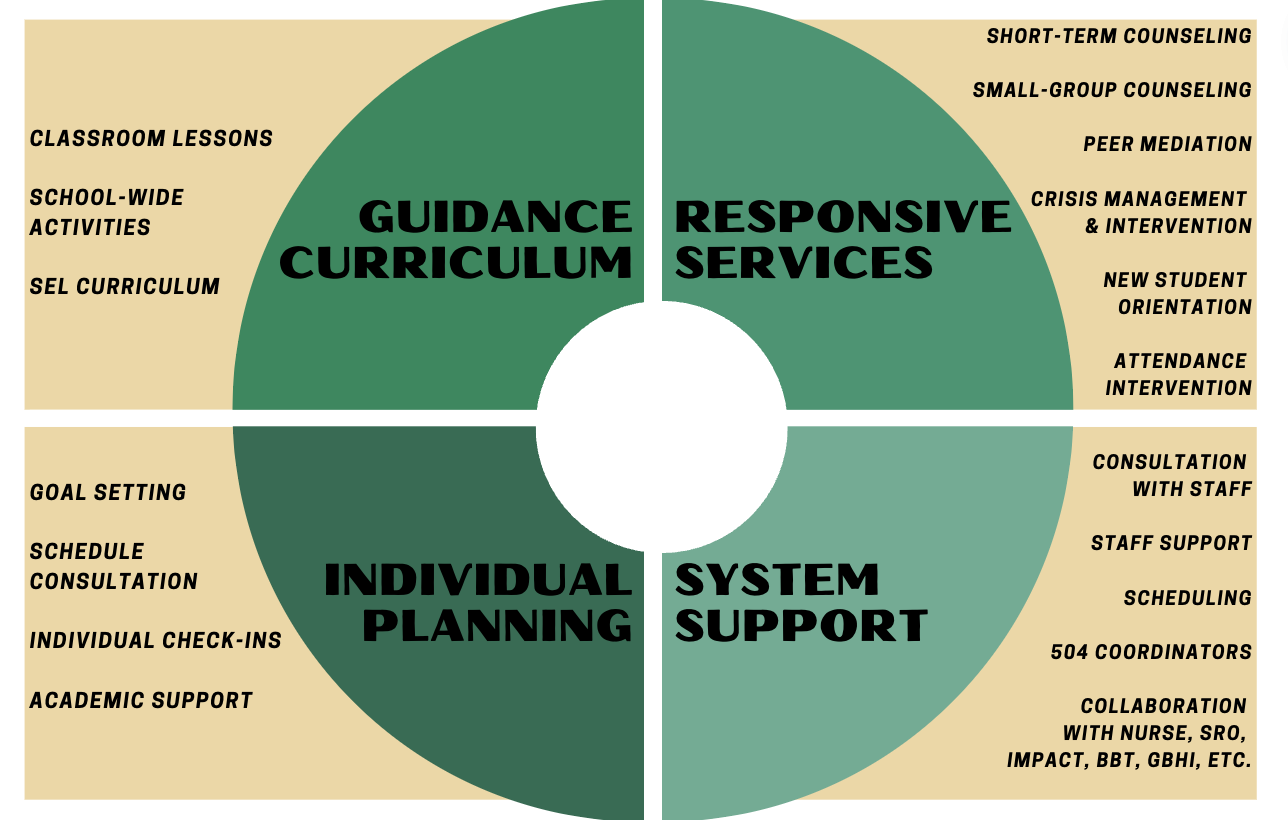- Naomi Pasemann Elementary
- Comprehensive School Counseling Program
-
Components of a Comprehensive School Counseling Program (CSCP)
According to Section 33 of the Texas Education Code, it is a school counselor’s responsibility to help each student develop their academic, career, personal, and social abilities through a comprehensive developmental guidance program. A school counselor works as a team with staff, parents, and the community to create a successful atmosphere for students.

A school counselor plans, organizes, implements, and evaluates a comprehensive developmental guidance program that promotes the educational, career, personal, and social development of students. The comprehensive developmental guidance program should include the following 4 components: guidance curriculum, responsive services, individual planning, and system support.
Guidance Curriculum is taught through classroom instruction by the school counselor as a preventative or remedial measure that focuses on the developmental needs of students. School counselors use the American School Counselor Association National Model and Texas Model to adapt their program to their school’s needs. Both of these models provide competencies and desired learning outcomes that play a key role in accountability. Examples of guidance units may include academic support (test-taking skills, for instance), goal setting, career awareness, peer relationships, communication, problem-solving, conflict resolution, etc.
Responsive Services includes meeting with individual or small groups of students to counsel. Small group counseling services are available through teacher referral, parent referral, staff referral or self-referral by any student. Short-term individual counseling is available as needed. Counselors might also consult with parents, staff, or educators, or refer students to other school support services or community resources.
An Individual Planning System helps students plan, monitor, and manage the decisions needed to be made throughout their educational career to establish goals and develop future plans. It educates students about understanding themselves and their strengths and weaknesses.
System Support involves supporting the staff, parents, and members of the community in the context of the program’s goals. This includes consulting and coordinating to help increase the effectiveness of the program and promote student success. It may also involve professional development.
-
Additional Counseling Information:
-
Curriculum & Resources
SEL (Social-Emotional Learning) Curriculum: Second Step
As parents and caregivers, you are your child’s first and most important teachers and play a vital role in their social,emotional, and academic development. Your child’s classroom teachers are here to support you in this, and the Second Step family of programs is one of the tools they’re using.Second Step programs combine discussions with fun activities and family resources. The programs help children learn social-emotional skills such as responsible decision-making, working together to solve problems, managing strong emotions, and getting along with others. These skills can help children succeed academically and socially.
The resources on this page provide information about social-emotional learning and the different Second Step programs. We’re proud to partner with your child’s school to offer our research-based, classroom-tested curricula that help make schools safe, supportive learning environments.
CCR (College-Career Readiness) Curriculum: Xello- Coming Soon!


